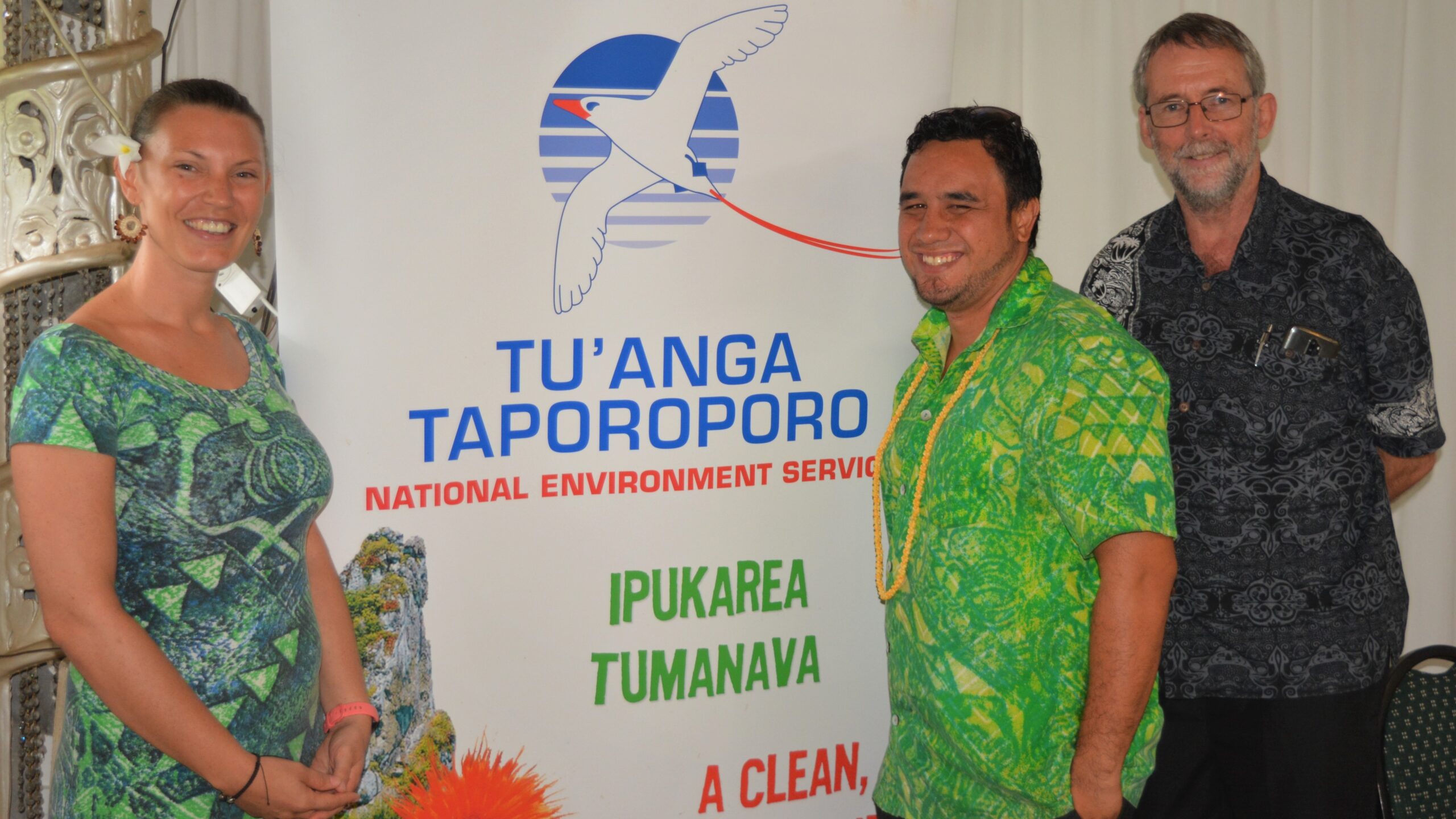GEF7 funding will support grass roots projects
Wednesday 11 May 2022 | Written by Melina Etches | Published in Environment, National

NES Environment Partnerships Manager Hayley Weeks, NES staff member Mura Herman and GEF7 Biodiversity Specialist Graham Wragg. Photo: Melina Etches/22051006
A validation workshop facilitated by the National Environment Service (NES) for the GEF7 funds (Global Environment Facility) of $7 million which starts early next year for a period of six years, was held yesterday with the project team and partners at the Crown Beach Resort.
Mura Herman from NES said, the workshop lays out the choices which have been approved under the project document; once it’s endorsed, it becomes an implementing project which NES will conduct with the different partners.
Graham Wragg, the GEF-7 Conservation Specialist and deputy team leader said it is the first very close to complete draft of the project document which is based almost 100 per cent on community conversations which occurred over January/February (2022), when meetings were held with more than 40 groups from Government, Non-Government Organisations (NGO’s), individuals, landowners and local communities on the islands of Rarotonga, Aitutaki and Atiu.
The priority goals are broken up into three components: management, policy and the catchment areas on the island and Manuae (managed area), the protected areas on Suwarrow, Takutea, Manuae…, and the knowledge, management, and communications or how to let people know how conservation issues are addressed, said Wragg.
“The project document is a balance of policy development and action on the ground, which is one of the major innovations of the project, a first time with GEF projects, we have a small grants programme in which these grants will be given to individuals and grass roots organisations, communities who have good plans on how to improve environmental issues,” Wragg said.
“As time goes by things change, people and politics change, and environment changes, this is the first time and its innovative GEF has adopted this approach, which means small groups can have a good idea, get it funded and do the job,” said Wragg.
GEF want local communities and indigenous groups to manage their own land, and with technical support of the agencies or individual experts, he added.
“This much more of a bottom up approach which requires reciprocal enlightenment - in that way a common goal is reached.”
The workshop is the last engagement for the GEF technical team, some points were brought up which will need to be incorporated into the document and wording improved.
The GEF document is simply worded, powerful and broad in its reach and is a very modern approach to conservation, Wragg said.
The GEF7 technical team are: James Lenoci – GEF Project Design Specialist (Team Lead), Graham Wragg - Protected Areas & Biodiversity Specialist, James Tremlett – Environmental Policy & Governance Specialist and Maureen Hilyard – Safeguards, Gender & Community Engagement Specialist; Anne Trevor – UNDP MCO Project Coordinator and Gabriel Jaramillo – UNDP Regional Technical Advisor.











































